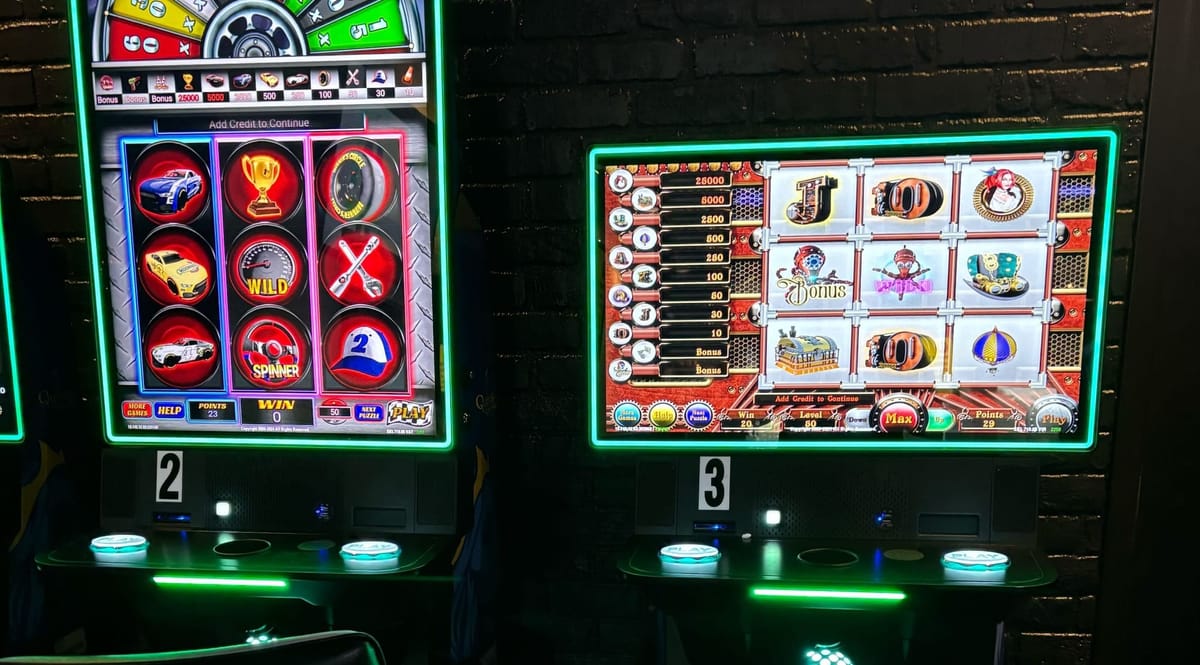AG Jason Miyares says new Queen of Virginia skill games are still illegal

Virginia Attorney General Jason Miyares says skill games that don’t accept cash are still illegal gambling devices under state law, rejecting a new legal theory put forward by top skill game company Pace-O-Matic.
In a memo sent Thursday to prosecutors, sheriffs and chiefs of police around the state, Miyares said Pace-O-Matic’s revamped Queen of Virginia machines still violate the law. Machines that operate through digital credits instead of cash, he concluded, still rely on the insertion of a “token or similar object” and therefore fall under the state’s ban on skill games.
“I trust that my analysis will be helpful to your members as they enforce compliance with Virginia’s gambling laws and end any attempts to circumvent the law,” Miyares wrote.
The memo cited previous reporting by The Richmonder about the appearance of new Queen of Virginia machines at a Henrico County sports bar. Miyares said an “investigative team” from his office saw the new machines, which both he and the company refer to as “QVS2” machines, at “multiple Virginia locations.”
Instead of accepting cash directly from players, the new machines are remotely activated by bartenders or cashiers who accept money from players and load digital credits onto the machines.
After reviewing how the new machines work, Miyares concluded that accepting Pace-O-Matic’s legal argument would create a “manifest absurdity” in the law.
“The General Assembly banned ‘skill games’ as illegal ‘gambling devices’ in 2020, and this ban applied to POM’s original ‘QVS’ skill games,” Miyares wrote. “The QVS2 device offers skill games that are virtually identical to the prior banned version. The fact that the new QVS2 device has a different payment system does not change the fact that players are presenting money for the sole purpose of digitally inserting the money, or a representative token thereof, into the QVS2 machine.”
Miyares noted that skill game manufacturers and operators who “choose to possess illegal devices” could be subject to civil and criminal penalties, including a $25,000 fine per machine.
“Moreover, manufacturers and operators should also remember that the opinions of retained private attorneys are not determinative of the legality of these devices,” Miyares wrote in an apparent reference to the team of lawyers working on behalf of the skill game industry that includes two former Virginia attorneys general.
In a statement, Pace-O-Matic rejected the guidance from Miyares as non-binding and signaled the company intends to fight it.
“Law enforcement should be aware that this is not the opinion of the Office of the Attorney General, it is simply a press release and does not carry the weight of the law,” said company spokeswoman Rachel Albritton. “We remain confident in the legality of our new games.”
The company, which was previously believed to have been responsible for about half the skill games in operation in Virginia, said the attorney general’s office previously argued in court that the insertion of a coin or object was a key element of the state’s definition of what a skill game is.
The Miyares memo said the term “token” can be construed to mean a “digital representation of value” and does not only refer to a physical object.
“Our legal team stands ready to defend the legality of our games and the rights of Virginia small businesses,” Albritton said. “AG Miyares has adopted the position of casino special interests and is operating completely outside of the authority or appropriate conduct of an Attorney General. That said, Pace-O-Matic remains eager to work with lawmakers toward a legislative solution.”






